
The second, and final, round of the Olympic Qualifier Series took place in Budapest, Hungary, over the weekend, with the final tickets to the Paris 2024 Olympics on the line.
After a strong showing for the Team GB hopefuls in Shanghai, with Erin McNeice finishing in third position, Hamish McArthur finishing in 7th, and Molly Thompson-Smith finishing in 13th, there was everything to climb for in Budapest, with the prospect of a full Team GB quota in the boulder and lead an ambitious, but by no means far-fetched, prospect.
Nothing was guaranteed, however, as a poor performance could send even the winners of the Shanghai event down to outside of the qualifying positions. Olympic Qualifier Standings going into Budapest were as follows:
Boulder & Lead
Qualification
With semi-finals all but guaranteeing Olympic tickets for a number of athletes in Budapest, the qualifying round was an intense affair.
A tough men's Boulder round saw Hannes van Duysen take the top spot, just 0.1 points ahead of Adam Ondra, in a round where no athlete was able to top three boulders, and Boulders 2 and 4 saw just a single top between them - from the reigning Olympic Champ, and third place qualifier, Alberto Gines Lopez. Hamish McArthur kept his Olympic dream alive with a 7th place finish, Max Milne followed close behind in 9th, and Jack MacDougall made a late charge with an 18th place finish.
The lead round saw Gines-Lopez, overall second place finished in Shanghai, reassert himself as a contender for Paris glory, compounding his third place Boulder finish with a second place lead finish, and thereby qualifying for semi-finals ten points clear of the next best athlete.
The familiar faces of Adam Ondra and Alex Megos rounded out the qualification 'podium', with Megos the best performer on the day. Three Qualifiers for the French team, Sam Avezou, Mejdi Schalck, and Paul Jenft, ensured that there was a good chance of home representation in Paris, albeit with the caveat that, even if they all finished in the top twelve qualifying positions, only two of them would be able to qualify, since there is a maximum of two athletes per nation in Paris. The battle between these three athletes would prove to be a focal-point of the competition, worthy of coverage in and of itself.
Unfortunately for Max and Jack, the lead round was their undoing, with Max finishing painfully close to semis in 22nd place, and Jack finishing ten places behind, in 32nd.
In contrast to the men's qualification round, the women's saw a round where all four boulders were not only toppable, but flashable.
Miho Nonaka set the pace with two flashes and two second-attempt tops, for an imposing score of 99.8. Yet, whilst that score would have represented a commanding ~30 point advantage in the men's bouldering round, it meant far less in the women's, with seven women achieving scores of over 99, including Shanghai winner Brooke Raboutou, and runner up Chaehyun Seo. As such, a strong boulder round seemed crucial to stay in touch, and to have a chance of qualifying for semis.
Both Erin and Molly went into the final boulder needing something special, and they delivered. On a boulder that had seen many fall at the final hurdle, a double dyno to a compression catch. Both flashed the boulder, Erin with a sense of steely determination, Molly with a look of pure joy that was a highlight of the round.
Both carried that form into the lead round, with Molly's score of 88.1 enough to bring her up to 10th overall in qualifying, and Erin's slow and methodical 96.1 - beaten only by Chaehyun Seo - enough to bring her up to 8th position. Watching Erin climb, you got the sense that she knew that this was the route that it all came down to, if she made semis, then the Olympic ticket was all but guaranteed. The Olympic dream remained alive.
Semi-Finals
In the semi-finals, the battle for the two men's French tickets intensified even further. Sam Avezou set himself off on a flyer of a round with a last second buzzer beater on M1, matching the top with just three seconds on the clock. That top, as well as tops on M3 and M4, was enough to separate him from the rest of the field, meaning he went into the Lead portion of the semi-finals with a commanding ten point lead over the next nearest climbers, Yannick Flohe, and the ever-consistent Alberto-Gines Lopez. Mejdi Schalck was close behind in fourth, with compatriot Paul Jenft just 5.1 points behind. Hamish McArthur finished strongly, despite struggling on the first three boulders, going into the lead in 11th place.
For both Hamish and Jenft, the semi-finals would be as far as the road went, with their lead scores leaving them in 10th and 9th place respectively. Gines-Lopez - yet again - showed that Tokyo was no fluke, and climbed himself to the top of a final line-up that comprised Dohyun Lee, Alex Megos, Adam Ondra, Hannes van Duysen, and Yannick Flohe, as well as just two remaining French athletes, Sam Avezou, and Mejdi Schalck.
Finals, however, were never the main goal, and whilst Jenft's participation in Budapest was over, his fourth place finish in Shanghai - compared to Schalck's 10th, and Sam Avezou's 8th - meant that any one of the three French athletes could still find themselves watching from the stands rather than climbing in front of a home crowd in August.
In fact, it was only the three French athletes, going into the final, who were still unsure of whether they'd be competing in Paris or not. Combined Shanghai and Budapest scores meant that everyone else knew already, provisionally of course, whether they'd made it, which meant that Hamish McArthur would be joining Toby Roberts in Paris for Team GB, alongside the following athletes:
Lee Dohyun (KOR), Alberto Ginés-López (ESP), Adam Ondra (CZE), Sascha Lehmann (SUI), Hannes van Duysen (BEL), Yannick Flohé (GER), Alex Megos (GER), Luka Potocar (SLO), Yufei Pan (CHN).
In the women's semis, the particularities of Olympic selection had the potential be even more crucial, as only fourteen of the twenty athletes in the final were theoretically able to qualify. Three athletes from France, two from Japan, two from the USA, and three from Slovenia, were competing for just four tickets, one per country. This essentially meant that the remaining eight tickets would be competed for by just ten athletes.
Both Miho Nonaka and Futaba Ito were competing for just a single space on the Japanese Team.
Brooke Raboutou put all but one toe in Paris with an excellent bouldering round, topping three of the four boulders, with only boulder 1 eluding her - as it did the rest of the field. Zhilu Luo and Miho Nonaka followed close behind, with Erin rediscovering the bouldering form that escaped her somewhat in the qualifiers in order to bring home fourth place.
All eyes were on the middle of the order, however, and after the bouldering semis were said and done, eleven of the twelve ticket positions were held by athletes of different nations, with the only athletes representing the same nation - Camilla Moroni and Laura Rogora of Italy - both eligible to qualify. Molly was the next eligible athlete on the list, in 15th position, followed by Jain Kim in 18th.
Eleventh out, Molly's semi-final lead performance was one of great composure, steady and smooth, she climbed until she was just shy of the headwall before missing a blocked crimp, scoring 54.1. She had climbed her way into a provisional fifth place, with nine climbers still to come.
Last out, Chaehyun Seo showed great fight to be absolutely sure of her ticket to what will be her second Olympic Games, battling her way beyond the brutal sloping pinch on the final headwall to fall just a few moves short of the top. Her score of 84.1 came second only to Brooke Raboutou, whose 88.1 gave her an overall score of 172.1, almost forty points clear of Seo's second-place 133.2. Coming off the back of a solid bouldering round, Erin's 51.1 was enough to secure a place in the finals, and - with a third place Shanghai finish already in the bag - she could now be certain of her place in Paris.
With the semi finals said and done, of all the French, Slovenian, American, and Japanese athletes who could have found themselves without a ticket due to their nation already having two athletes, only one, Futaba Ito, missed out, with Miho Nonaka securing the sole Japanese seat to join Ai Mori, third place finisher in Bern, at this Summer's Olympic games.
As such, it was Molly Thompson-Smith - who just 18 months ago was taking her first steps without crutches after fracturing and dislocating her ankle - who earned the final Olympic ticket, beating Jain Kim by just two points across the two events.
In addition to Brooke, Chaehyun, Miho, Erin, and Molly the following seven athletes finished the semi-finals safe in the knowledge that, barring appeals, they would be competing in Paris:
Jenya Kazbekova (UKR), Lou Zhilou (CHN), Zélia Avezou (FRA), Camilla Moroni (ITA), Lucia Dörffel (GER), Mia Krampl (SLO), Laura Rogora (ITA).
Finals
Whilst 22 of the 24 tickets were now accounted for, the three-man battle for the two French places was very much still alive, as were the bragging rights for the overal OQS title.
Adam Ondra was first out in the bouldering, securing the high zone - a dynamic drop down to a sloping side-pull - within a few attempts. When he found himself struggling on the springy final paddle dyno, however, it felt reasonable to assume that someone better versed in the style - a Mejdi Schalck, or a Dohyun Lee - may well come along and cruise through the upper section.
As it turned out, Adam was one of just two climbers to reach the second zone, with every other climber unable to find the balance point that he was able to find time after time, a reminder that the magic that Adam is capable of isn't just limited to rock. Sam Avezou was the only other climber to reach the high zone of M1. After initially struggling with reaching the first move, he managed to move through it and reach the second zone without ever finding the delicate balance point that Ondra found, instead somehow holding himself into the wall by pressing upwards into the dual-text portion of the sidepull.
The problems presented by the first boulder continued for the rest of the round, with none of the first three boulders receiving a top. The battle for the French spots, however, was, nonetheless, growing ever more tense. With three boulders finished, Sam was five points clear of Mejdi, with Hannes van Duysen splitting them up. If both finished in the top three, after the lead, then they would compete together in Paris, with Paul Jenft on the sidelines.
The final boulder, however, was the one that truly split the field. Flashes from Sam and Hannes, and second attempt tops from Adam and Dohyun, established a 'Top 4', with Mejdi, Alberto, Alex, and Yannick unable to reach the high zone.
The lead was a similarly low scoring affair, one where the upper headwall was made irrelevant by the difficulty of the route lower down. Only Dohyun Lee, Alberto Gines-Lopez, and Sam Avezou made it past the intense undercling move that spat off Adam Ondra, and even then each climber could only manage a move or two more.
Checking the scoreboard before he'd even reached the ground, Sam saw that he'd moved into first position, bumping Mejdi into third place, with four athletes to go. He released the tension with a huge scream, and collapsed onto the ground in tears. The sight of Mejdi cheering him on, even as he knew that his own Olympic dream was slipping away, was simultaneously heart-warming and heart-breaking.
Yannick Flohe's low fall kept Mejdi's Olympic dream alive for the briefest of moments, before Hannes van Duysen pushed Mejdi down into fourth position, thereby effectively giving the French team's second men's ticket to Paul Jenft - who joined Sam Avezou by bursting into tears.
Jenft later said, 'It was really hard because for the first time I knew Mejdi was not going in the Olympics and it was a hard perspective because, for some point, it was my fault. It's really hard to make it not possible for your friend to go to Paris. It's really, really hard. We trained together for (the past) three years and that was the worst scenario that was possible'.
'I don't know why I was crying, it was the release of pressure after a long, long time. It was stressful all day, every day (in Budapest) and in one second everything stopped. It's a strange thing'.
Sam's performance was enough to take the top spot in the end, with Dohyun Lee - winner in Shanghai - finishing in second place, and Adam Ondra taking bronze position, as he did in China. This meant that the overall OQS podium consisted of Dohyun Lee in first place, Sam Avezou in second place, and Adam Ondra in third.
Speaking of his Budapest win, Sam said 'I never reacted this well to pressure before. You could see in Shanghai it wasn't great (he slipped on the first hold of his lead climb in the final). I am super happy I could manage eventually the pressure here and yeah, probably under pressure my best climbs ever'.
Peculiar though it may be to describe fourth place finisher - and reigning Olympic Champion - Alberto Gines-Lopez as a dark horse for the Paris title, his consistency across Shanghai and Budapest, has been extraordinarily impressive. He has finished on the 'podium' in 3 out of 6 boulder rounds, and 6 out of 6 lead rounds - three of which he won. He finished 3 of the 6 'combined' rounds in first place outright and came in second place in a further two, only dropping outside of the combined podium positions in the very final round in Budapest.
With all Olympic places essentially confirmed, there was certainly less tense and nervous energy in the women's final, which felt more like a celebration than a competition. Laura Rogora looked like she couldn't care less about her score of 0.0 on boulder 1, whilst Erin looked similarly joyful when she became the first climber to top the boulder, taking two attempts to unlock the dynamic gaston-press, before flashing the final double dyno.
Erin's quick top of that first boulder, as well her top of the balletic fourth, showed just how good her understanding of movement and timing is, and put her up into third place going into the Lead final, behind Brooke Raboutou in second, and Miho Nonaka in first - the only athlete to top all four boulders.
The same top three remained firm in the lead. Fourth out, Erin climbed confidently, falling just shy of the headwall, moving into first with a 47 point lead over the three athletes that came before her. Miho's unparalleled bouldering round meant that her lead score of 57.1 was enough to overtake Erin, before Brooke, last out, surpassed them both, adding the Budapest crown to the Shanghai crown, and thus taking the overall OQS title. Miho Nonaka's second place finish squeezed her into second place overall, whilst Erin's third place finish in both comps secured an overall Bronze medal, and - of course - a ticket to Paris.
When asked about her feelings on having qualified for Paris, Erin said 'I'm a bit relieved. I'm so happy that I managed to enjoy it, and to get two medals in the process (OQS Shanghai and Budapest) feels amazing'.
'I'm not scared (of going to Paris 2024), but it's a big comp so it's definitely a bit intimidating. I'm going to relax a bit then have a couple of hard weeks of training.'
On finally qualifying for Paris 2024, after narrowly missing out at the World Championships and PanAm Games, Brooke Raboutou said: 'It's hard to believe, I'm incredibly happy. It's been a hard journey. I missed some chances to qualify. So it was panic no, stress yes. It's been a lot of heartbreak and a lot of growth'.
'Honestly, I am grateful for it all. They say the harder the journey the better it feels, and I could not feel that more. I am incredibly proud about how much each stage taught me. I've had really good performances'.
Raboutou's consistency across both bouldering and lead, in which she has finished either first or second in each of the six 'combined' rounds, shows that she will be a force to be reckoned with in Paris. Small mistakes here and there cost her dearly in Tokyo, but these past two competitions have shown a different, more assured athlete, one that is without doubt capable of challenging for the medals later this summer.
Speed
In the speed, the men's qualifiers were nowhere near as nervy as they had been in Shanghai, with just one fall in the thirty-two runs of those that qualified for the last 16, and every single time beneath six seconds. Three climbers broke the 5 second barrier, Peng Wu, Veddriq Leonardo, and Amir Maimuratov, who took the top spot with a time of 4.95.
Incidentally, 23 of the 32 competitors registered times that were faster than the current Olympic record of 5.45 seconds, held by Bassa Mawem. This just goes to show how much the top end of the sport of speed climbing has progressed since Tokyo, when the World Record was still 5.20 seconds.
The race for the last Indonesian place was still on, with three Indonesian athletes qualifying for the last 16. Veddriq Leonardo, winner in Shanghai, and first climber to break the 5 second barrier, made a strong claim to join Rahmad Adi Mulyono in Paris, winning his last 16 race and securing himself a minimum of 8th place. In the quarter-finals, he lined up against Kiromal Katibin, his closest Indonesian competitor, knowing that a win would secure his ticket. He did just that, with a time of 4.96, thereby taking the hotly-contested final Indonesian ticket.
Leonardo fell in the semis to Peng Wu, who went on to take the Budapest title against Amir Maimuratov, with Leonardo beating compatriot Aspar Aspar in the small final.
When asked how he stays so calm, Wu said 'I am not always calm, I feel nervous as well but I don't want to let nerves affect my performance. I just try not to make mistakes and now I am so happy'.
In addition to the Budpest title, Wu took the overall OQS title, with Leonardo claiming the silver. Amir Maimuratov brought home the overall bronze, with the remaining four tickets going to Zach Hammer of the USA, Reza Alipour Shenazandifard of Iran, Yaroslav Tkach of Ukraine, and Euncheol Shin of South Korea. With Wu and Leonardo claiming the tickets to Paris, two athletes apiece from China and Indonesia found themselves within the qualifying positions for the Olympics, but ineligible to compete due to their teams already being full.
On the women's side of things, the narrative was all about Polish twins Aleksandra and Natalia Kałucka. With Aleksandra Mirosław taking the first of a maximum of two Polish places through her win at the European Qualifier in Rome last year, there would be only one spot available between the twins. Coming out of Shanghai, Natalia had the advantage, having won the small final, compared to Aleksandra's narrow loss in the quarter-finals to Rajiah Sallsabillah. As such, Natalia took a five point advantage into Budapest.
Straight off the ground, Aleksandra showed everyone that she was there to win, with a time of 6.60, the fastest in qualifying. Natalia was only 0.16 seconds behind, however, qualifying in 5th place.
With both through to the last 16, Aleksandra continued her impressive form, registering the fastest time of the round yet again, a 6.68. Natalia, however, went no further, falling to Manon Lebon of France. Aleksandra still wasn't home and dry, though, she needed a quarter-final win against Shaoqin Zhang to progress, and to be sure of her place in Paris.
In a tight race, won by just 0.06 seconds, Aleksandra progressed to the semi-finals, in doing so guaranteeing her Olympic place, and knocking her twin sister out of the running. She breezed through the semi-finals in a time of 6.61, before registering the fastest time of the competition, 6.50, to take home the crown.
Speaking after the final, Aleksandra said 'It was very hard today, to deal with the pressure. I knew I had to fight with my sister because we had similar points. So, it was like a rollercoaster. I am so happy I did it because it was one of the hardest things I have ever done. So, I am so proud of myself and I am headed to Paris'.
'During our breakfast today we were crying because we were aware that it would be a bittersweet evening for us. It's a hard situation. It's kind of not fair because she deserves this so much and now she is crying and she is sad. But I think she is also happy for me'.
China's Zhou Yafei took the overall title, Aleksandra Kałucka finished second, whilst Indonesia's Rajiah Sallsabillah took third, with each earning an Olympic ticket. As with the men's side, athletes from China and Indonesia found themselves within the qualifying positions, but unable to claim a ticket due to their nation already having two athletes qualified, as did Natalia Kałucka of Poland, who finished in 5th overall.
As such, Manon Lebon (FRA), Leslie Adriana Romero Perez (ESP), and Beatrice Colli (ITA) who finished in 10th, 12th, and 13th respectively overall, found themselves in the top 7 eligible athletes, alongside Capucine Viglione (FRA), who finished in seventh place.
Speaking about qualifying for a home games, Viglione said: 'It was really hard to climb fast and just leave the brain on the floor and just climb. Because I wanted something really bad and I was thinking about it a lot. The pressure was terrible, and it was hard to go fast under pressure. But I'm really happy'.
'It's in France and it will be a big event. It's already a big event because everywhere we see Paris 2024. It's going to be amazing. Maybe the pressure will be hard at the Olympics, but now, I just take one week off, and then training, and we'll see in August. I can't wait'.
'Strong interest' in the OQS
Speaking on the success of the OQS events, IOC sports director Kit McConnell had the following to say:
'We're already starting to think about ways to make the Olympic Qualifier Series a cornerstone of the Olympic qualification process moving forward. We've seen significant success and demand for the events in Shanghai and Budapest, indicating the strong interest the format already has'.
'The Olympic Qualifier Series goal is to transform the qualification process into a celebratory and high-profile event, with the aim to resemble how other major events in sports like football handle their qualification stages, making the journey as big a moment as the Games themselves'.
'Looking ahead to Los Angeles, we envision expanding the concept to include more sports and additional host cities, creating a series that is eagerly anticipated in each Olympic cycle. The series not only highlights the athletes' journey, but also adds significant value to the international federations and to the host cities. The combination and celebration of sports, music, culture, and urban sports will attract both local and global audiences'.
'[The two events] have shown the excitement of this festival-style series and will set a precedent for future Games. We anticipate the increased visibility and engagement from these events will help build momentum and excitement leading up to Paris 2024 and for the future Games beyond'.

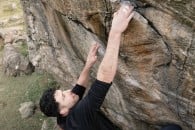





























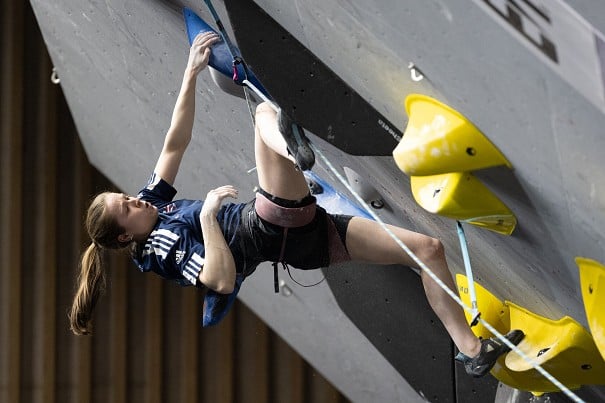
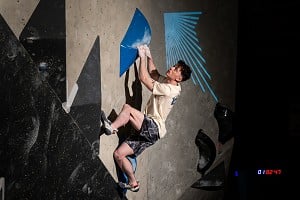
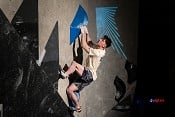
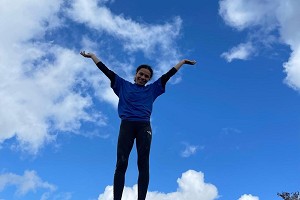
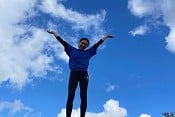
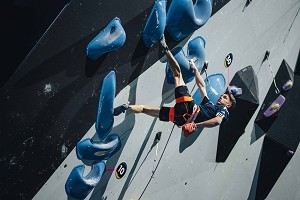
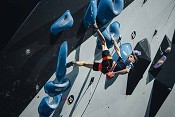
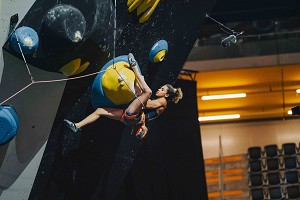
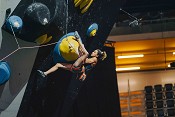
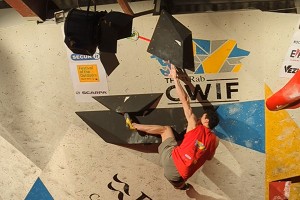
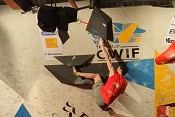
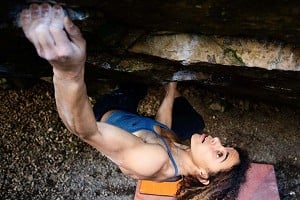
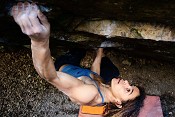
Comments